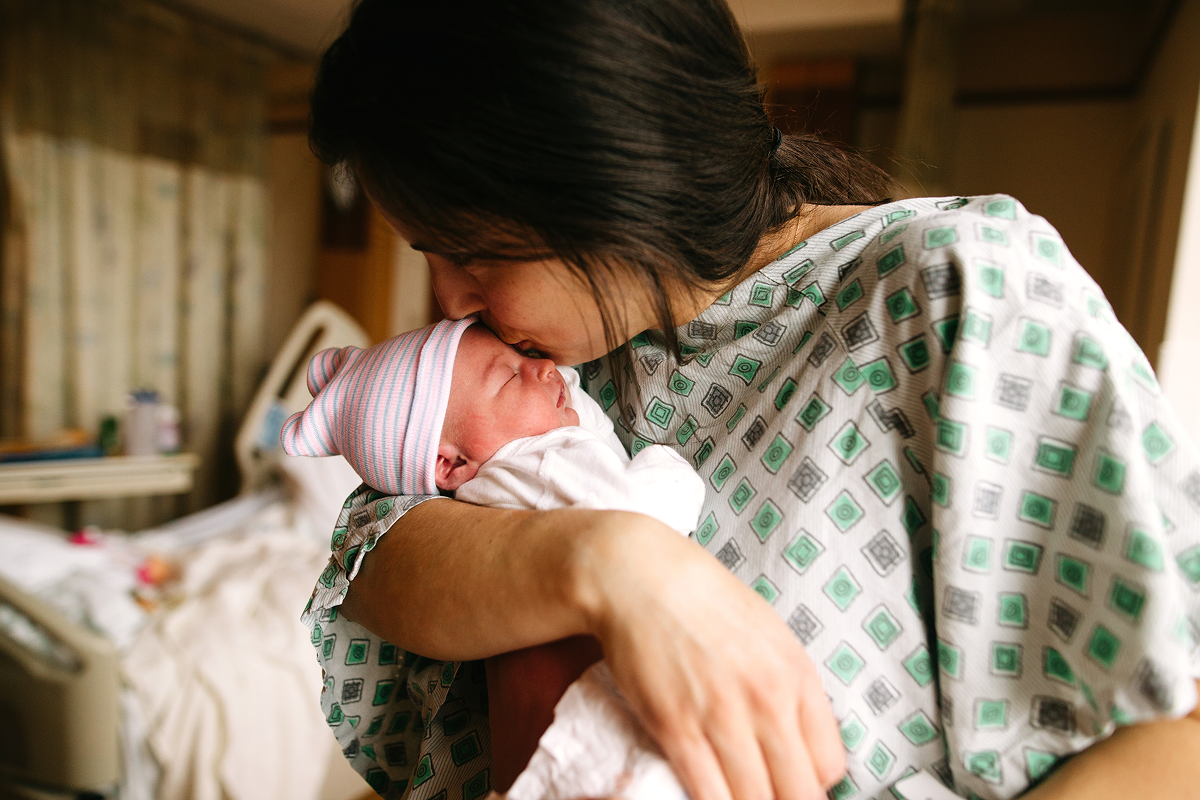If all the ins and outs of breastfeeding are making your head spin, you’re not alone. Here are the most common questions we receive in our Breastfeeding 101 class, with answers from Maven Midwife and Lactation Consultant Nina Wilson. Have a question we didn’t cover? Talk to a Maven Lactation Consultant anytime for personal advice!
When should I start breastfeeding?
ASAP! Most experts recommend breastfeeding within 30 to 60 minutes of delivery. Breastfeeding right after you give birth is one of the best things you can do to make nursing easier for you and your baby over the long haul. Even if this means you have to nudge the grandparents and other visitors back into the waiting room, your effort will be worth it.
Can I breastfeed immediately even if I’ve had a C-section?
Usually, yes—although you should talk with your care providers in advance. Any pain-relief drugs you might have been given during the operation, including an epidural, shouldn’t affect your ability to nurse. Once you’re ready to hold your baby and try latching, ask your partner, a doula, or a lactation consultant at the hospital to help you find a comfortable position that doesn’t cause too much pain near your incision. Here’s a little tip: Many moms who’ve had a cesarean say the “football hold” works best. Tuck your baby under your arm, along your side, as you support your baby’s body with your forearm.
Can I breastfeed when I’m sick?
Yes. In fact, very few illnesses might require you to put the brakes on breastfeeding. But in the case of, say, a common cold or flu, your milk still has benefits, exposing your baby to essential antibodies.
How often should I breastfeed a newborn?
The short answer: On demand. In other words, whenever your baby displays any hunger cues, including bringing his hands to his face or making mouthing motions. The longer explanation: A newborn’s tummy is tiny and can’t hold large volumes of milk at one time, so frequency is the name of the game. During the first month, this may mean your baby is nursing every two hours (nighttime feedings can be spaced out a little more—but no more than four hours should pass in between feedings).
As your baby grows, they will drink more breast milk less often—especially when you start to introduce solid foods around six months.
What age should I breastfeed my baby until?
Breastfeeding your baby any amount until they are 6 months old is great for you and your baby if it works for your family.
The World Health Organization and the American Academy of Pediatrics recommends breastfeeding exclusively and on demand for the first 6 months if possible, and up to 2 years or longer (along with introducing safe and nutritious foods). That said, feeding is a personal decision made by you, with help from your child’s pediatrician.
What if I’ve tried everything and can’t get a good latch?
During the first few days after giving birth, you can express colostrum—your first milk—by hand so you can feed it to your baby if latching is a problem. Colostrum has been referred to as “liquid gold” because even tiny amounts provide newborns with all the nutrients they need. This can put your mind at ease while you work with a lactation consultant to get help. Breastfeeding doesn’t always come easy and you may need some guidance to resolve any issues.
Maven offers video appointments with lactation consultants who can observe your latching technique and provide real-time tips. Getting support early can save you weeks of pain and worry. Sign up now and talk to a lactation consultant today!
Ready to get started with Maven?
See how Maven can support working families, retain talent, and reduce costs

Activate your Maven account today
Maven members have unlimited access to 24/7 care and 30+ types of providers. Check to see if you have access to Maven providers and resources today.
Explore Maven






.png)

.png)
.png)
